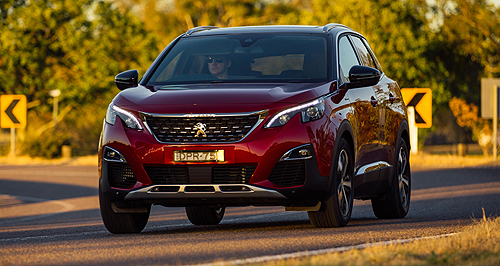News - PeugeotPSA Group ready as WLTP standard starts in EuropeReady or not: Peugeot’s 3008 mid-size SUV is ready for the switch to WLTP, thanks to its range of homologated BlueHDi diesel and PureTech petrol engines. Strict WLTP fuel-consumption, emissions regulation hits Europe on September 131 Aug 2018 WITH the Worldwide harmonised Light duty vehicles Test Procedure (WLTP) to replace the New European Driving Cycle (NEDC) on September 1 as the fuel-consumption and emissions regulation in Europe, PSA Group has announced that its passenger-car line-up – including Peugeot, Citroen, DS, Opel and Vauxhall models – has been homologated in time.
As such, the French conglomerate has avoided withdrawing some its models from sale due to the strict, time-consuming WLTP homologation process – a scenario that has impacted Volkswagen, Audi, Skoda and BMW, among others.
In order to do this, PSA Group added a selective catalytic reduction (SCR) system to its BlueHDi diesel engines from 2013 and, more recently, a petrol particulate filter (PPF) to its PureTech petrol units.
These moves resulted in models fitted with the BlueHDi and PureTech engines meeting WLTP’s demanding emissions standards for nitrogen dioxide (NOx), carbon monoxide (CO) and particulate matter.
Additionally, WLTP’s driving cycles reset the expectations for distance, average speed, gear shifts and temperature during testing to deliver realistic fuel-consumption claims. However, tests are still conducted in a laboratory and not on public roads.
Specifically, the cycles cover 23.25km (up 12.25km) of driving over 30 minutes (up 10) and four phases (up two). As such, their average speed is 46.5km/h (up 12.5km/h) and maximum velocity is 131km/h (up 11km/h).
While NEDC mandated fixed gear shift points for all vehicles, WLTP has unique set-ups for each vehicle. Conversely, temperatures varied from 20 to 30 degrees Celsius during NEDC testing, while WLTP keeps it consistent, at 23 degrees Celsius. It does, however, correct CO2 values to 14 degrees Celsius.
Crucially, hybrid vehicles will be tested with and without a full battery, helping to provide a more accurate CO2 emissions reading, as they are not always charged before being driven.
It is expected that once vehicles pass WLTP homologation, their fuel-consumption and emissions claims will be higher than what was previously quoted under the 21-year-old NEDC standard still used in non-European markets.
Thus, WLTP makes it more difficult for car-makers to meet Euro 6d-TEMP emissions targets – applicable to new models launched from September last year – that they may have been able to satisfy under NEDC.
Due to several challenges, including poor fuel quality and federal government inaction, it is unclear when, if ever, WLTP will be adopted Down Under. Based on NEDC, ADR 79/04 is the current fuel-consumption and emissions standard locally.
As mentioned, several brands have been forced to temporarily withdraw models from sale due to the limited number of independent testing rigs available to all European manufacturers, requiring some to work around the clock in preparation for the switch.
Critically, WLTP requires every configuration of a model to be homologated; for example, those with differing wheel sizes. This means some car-makers, such as Volkswagen, have a backlog of vehicles still awaiting certification days out from the changeover.
Given that WLTP currently applies to Europe only, other key markets, such as North America and China, are not subject to its regulation. However, European-built and -distributed models require homologation, regardless of where in the world they are sold, creating a flow-on effect elsewhere.
In some cases, such as BMW’s M3 sedan, vehicles will not return to sale due to the extensive re-engineering that can be required near the end of their life cycle, instead waiting until their next-generation models come online.
Other scenarios have seen low-volume vehicles, such as Volkswagen’s Tiguan 110TSI, suspended from showrooms with plans to relaunch after their high-volume counterparts have undergone WLTP homologation.
As previously reported, this situation has forced Volkswagen Group Australia to reset its annual sales expectations for this year and next, partly due to supply issues created by the transition to WLTP.  Read more |
Click to sharePeugeot articlesResearch Peugeot Motor industry news |
















Facebook Twitter Instagram